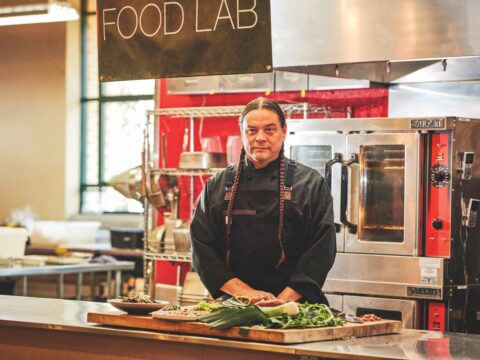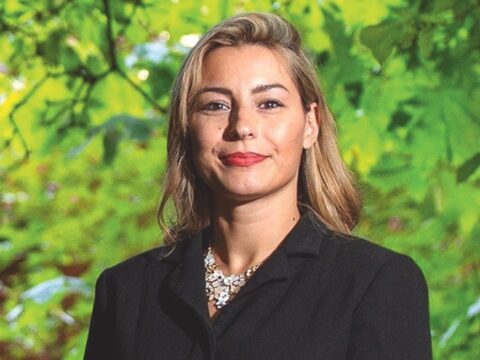The United Church of Canada has voted to take the first steps to look into uniting with other denominations.
On July 23, the church’s General Council approved a motion to “direct the general secretary to draw upon the wisdom of global ecumenical partners and denominations” that are in union with other churches like the Anglicans and Lutherans to further a United Church effort to pursue church union in Canada. The discussion would be part of a dialogue with other mainline Protestant churches in Canada to talk about the possibility of uniting. In its recommendation to affirm the proposal, the General Council facilitation team told delegates that there was “general support for exploring what church union looks like in the 21st century.”
You may unsubscribe from any of our newsletters at any time.
“Necessity is going to be the mother of invention,” Rev. Taylor Croissant, the proposal’s lead author, said in an interview, speaking of declining membership and finances in the United Church. “If that creates a new denomination that has greater health, that’s really good,” he said. But for Croissant, those are secondary motivations.
“The primary motivation needs to be theological,” Croissant said, explaining that denominational and social issues that have historically kept Protestant denominations apart are not as relevant today.
Rev. Bethe Benjamin-Cameron, a commissioner from O’Leary West Cape Pastoral Charge in Prince Edward Island, said she was pleased that the motion carried. “To me, this goes to our motto ‘that all may be one,’” she said.
“Being one doesn’t mean that we are all exactly the same,” Benjamin-Cameron said. “Theologically, we may never all come together but there are so many things we can work towards as one and have a united voice around.”
“Maybe the word ‘union’ scares me a little bit,” said Patricia Bird, a commissioner from Prairie to Pine Regional Council. However, she noted that the time the church spends exploring ideas is a comfort. “It’s not like this would happen next month.”
Indeed, Croissant stressed that amalgamation of denominations would be a long process, recalling that the discussions that resulted in the United Church union in 1925 were lengthy. In fact, formal union discussions among Congregational, Methodist and Presbyterian churches began in 1902 following a proposal for discussion in 1885.
More on Broadview:
- Carmen Lansdowne elected as United Church moderator
- United Church votes to support creation of a self-determining Indigenous church
- United Church could cut ties with its innovative ministries branch
“This is not something that’s going to happen right away,” Croissant said. Instead, the proposal is simply meant to initiate the process with the expectation that “it will take at least a decade.”
“This isn’t even a marriage,” explained Rev. Samuel Grottenberg, the proposal’s second author. “This isn’t even asking someone on a date yet — we’re just getting to know them.”
In response to a question during the decision session about whether there was existing interest from other denominations in joining forces with the United Church, general secretary Rev. Michael Blair explained that as part of a strategic planning process, The United Church of Canada had engaged in conversations with Anglican, Presbyterian and Lutheran counterparts about responding to the larger challenges facing the church within the Canadian landscape. Though Blair believed that those conversations would continue, he emphasized that “we can’t presuppose what would happen in those conversations.”
Blair reminded delegates that the existing formation of the United Church didn’t come about overnight. “It came with a long history of conversation,” he said.
***
Leslie Sinclair is an intern at Broadview.















In the 1970’s the United Church leadership culturally appropriated the Indigenous Medicine Wheel onto the United Church logo. The unifying blue life giving background logo was replaced with the existing divisive four colours. Now the General Council wants to appropriate the properties, resources, finances, revenues of other churches to boost the revenues and fiscal policies, under the guise of ecumenism. The strategies are significant in the Art of War philosophy as opposed to the teaching of Jesus Christ. “Now there are varieties of gifts, but the same Spirit; and there are varieties of services, but the same Lord; and there are varieties of activities, but it is the same God who activates all of them in everyone” (1 Corinthians 12:4-6).
I guess the deeper question is: has the Protestant Reformation run its course? What’s the contemporary rationale for being a PROTESTANT Christian?
Christianity today seems polarized by Catholics/Orthodox on the one hand and a variety of fundamentalists on the other. Is the rational then for Protestantism not being one or the other?
Or?
John Knox said, Know God, Be Faithful, Bless Scotland. We need to Know God, Be Faithful, Bless Turtle Island.